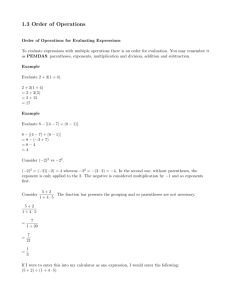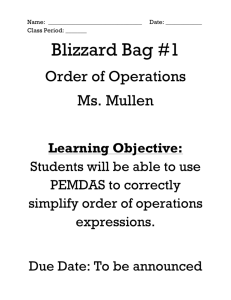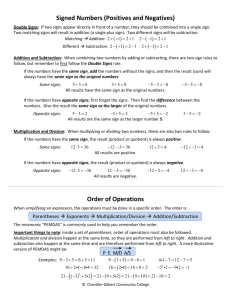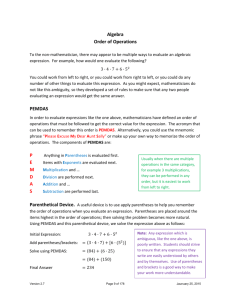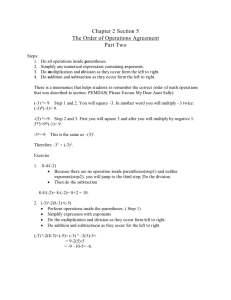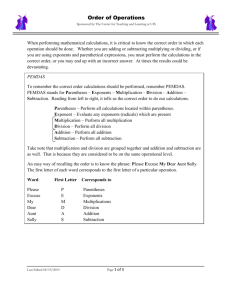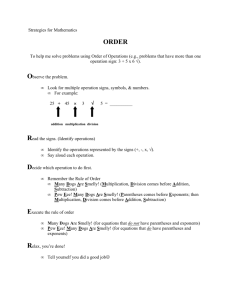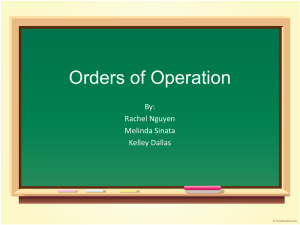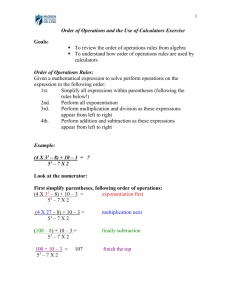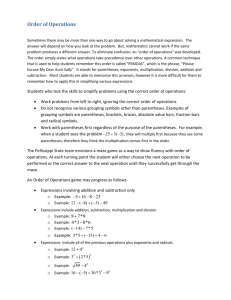The Order of Operations
advertisement
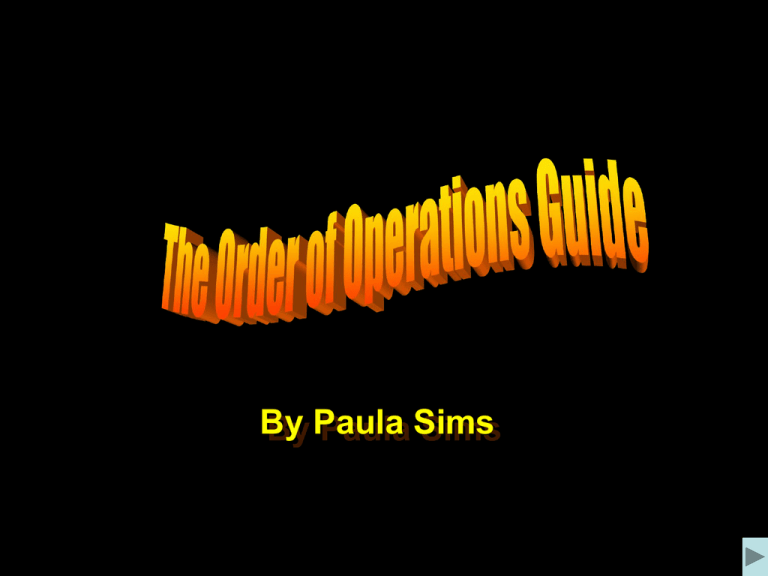
By Paula Sims The origin of the Order of Operations continues to be a mystery. Evidence shows that the rule Multiplication precedes addition and subtraction was developed in the 1600’s. The Order of Operation has existed since the beginning of algebraic notation. Prior to this, mathematicians used grammar. Before we look at the Order of Operations, does anyone know what the acronym for it is? How about the mnemonic? If you guessed PEMDAS as the acronym you are correct. Now let’s look at what the mnemonic stands for. Please () Parentheses Excuse n2 Exponents My x Multiplication Dear / Division Aunt + Addition Sally - Subtraction Evaluate this algebraic expression 3-5+7x3 Was your answer 15? That is because most of us normally work from left to right without the rules to guide us. When we evaluate the same expression using PEMDAS we have: (3-5)+(7x3) Since the order of operations tells us to first work inside the parentheses we may begin with the first part of the expression: (3-5)=-2 then we work inside the second part of the expression: (7x3)=21 When we combine our answers we get: -2+21=19 This is different than our original answer of 15. Lets Practice using PEMDAS on a few equations: 1). 3(2+3)-7+8/2= 2). (4+2)/3-8/4+3x2= 3). 5-9/3+3(2+1)= 4). (3+9)/(4-1)-4+(8/2)= We will work on the first one together. 3(2+3)-7+8/2= Parentheses (2+3)=5 Multiplication 3(5)=15 Division 8/2=4 Addition 15+4=19 Subtraction 19-7=12 Compare the rest of your answers to mine. 2). 6 3). 11 4). 4 Did we use the same order of operations? If your answers differ from mine, try again and see which operation you may have either left out or completed out of order. Now try some equations that contain exponents: 2 1). 3-(4-(7+2)) = 2 2). 2-(3-6) x(-4)= 2 3). 3-(-2) x(-8)+3= Compare your answers with mine 1). -22 2). 38 3). 38 Are we in agreement? If not that’s alright because this process will take time to master and you are off to a great start. So continue to practice and have fun challenging yourselves. Now that you are armed with the great knowledge of the Order of Operations go out there and kick some math! Work cited http://en.wikipedia.org/wiki/order_of_operations http://www.city.directories.us http://mathforum.org/library/drmath/view/57737 html http://members.aol.com/jeff570/operations.html www.Microsoft clip art Slavin, Steven and Selby, Peter H. “Quick Algebra Review” 1993 John Wiley & Sons, Inc.
